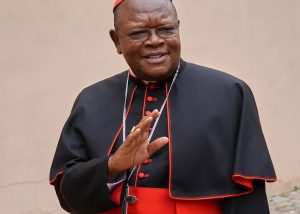Elon Musk has further fueled controversy in European politics by hosting a live interview on Thursday with Alice Weidel, the frontwoman of Germany’s far-right political party, Alternative für Deutschland (AfD). The 74-minute conversation, which covered topics ranging from energy policy and the intricacies of German bureaucracy to Adolf Hitler, Mars, and the meaning of life, marked a significant moment in Musk’s political engagements outside the United States.
During the interview, Musk openly endorsed the AfD, urging Germans to support the party in upcoming elections. His remarks have raised eyebrows, as they represent a continuation of his increasing involvement in European political matters. The discussion was seen by many as an attempt to influence Germany’s snap election, with Musk’s endorsement drawing significant attention. The interview was conducted in English, and while Musk’s influence in the U.S. is well-documented, this conversation seemed designed to help the AfD reach an international audience via Musk’s social media platform, X.
Alice Weidel took the opportunity to express her support for former U.S. President Donald Trump, highlighting her admiration for him and his team. She reiterated that the AfD was a “conservative” and “libertarian” party, arguing that the mainstream media had unfairly labeled it as extremist. However, parts of the AfD have been officially classified as a right-wing extremist group by German authorities. A BBC investigation last year revealed connections between certain party members and far-right networks. Additionally, Björn Höcke, a prominent figure within the AfD’s hard-right faction, was fined for using a banned Nazi phrase, though he claimed it was not intentional.
During the interview, Weidel made a controversial statement about Adolf Hitler, claiming that Hitler had been a “communist” and a “socialist,” despite the fact that Hitler’s regime was deeply anti-communist and responsible for the invasion of the Soviet Union. She also described Hitler as an “antisemitic socialist,” an assertion that raised eyebrows given the well-documented history of Nazi ideology. Weidel’s comments added to the already controversial nature of the conversation.
The discussion also touched on several other topics, including Germany’s notorious bureaucracy, the country’s abandonment of nuclear power, the need for tax cuts, free speech, and what both Musk and Weidel referred to as “wokeness.” The conversation, at times stilted and awkward, took a surprising turn when Weidel asked Musk whether he believed in God. Musk’s response was a philosophical one, stating that he is “open to the idea” and seeks to “understand the universe as much as possible.”
Although the conversation was unexpected, it highlighted Musk’s continued role as a significant figure in global politics. The AfD, which opposes Germany’s weapons aid to Ukraine, is currently polling second in the country ahead of the federal elections scheduled for February 23. However, the party is unlikely to gain power, as other parties have ruled out working with the AfD.
Despite this, Musk has expressed his belief that Weidel is the “leading candidate to run Germany.” He has justified his involvement in German politics by pointing to his significant investments in the country, including a large Tesla factory just outside of Berlin. Musk has previously dismissed the characterization of the AfD as far-right, instead criticizing German Chancellor Olaf Scholz, whom he called a “fool.”
Chancellor Scholz, who is facing difficult prospects of retaining his position, reacted to Musk’s criticisms by stating that he was “staying cool” amid the billionaire’s attacks. Nevertheless, Musk’s continued interventions in German and European politics have sparked concern among some political leaders, who have warned of the potential dangers of misinformation and undue influence in the political process.
The intersection of Musk’s business interests and political influence raises important questions about the role of tech billionaires in shaping the political landscape, particularly in foreign countries. His support for far-right movements and his willingness to publicly endorse controversial figures have led to increased scrutiny of his actions. While Musk’s interventions may be framed as advocacy for political change, they also highlight the power of social media and the growing influence of wealthy individuals in global politics.
As Germany approaches its upcoming elections, Musk’s involvement in the political process will likely remain a topic of intense debate, with many questioning the implications of his endorsement of far-right groups and the potential impact of his influence on the outcome of the election.







